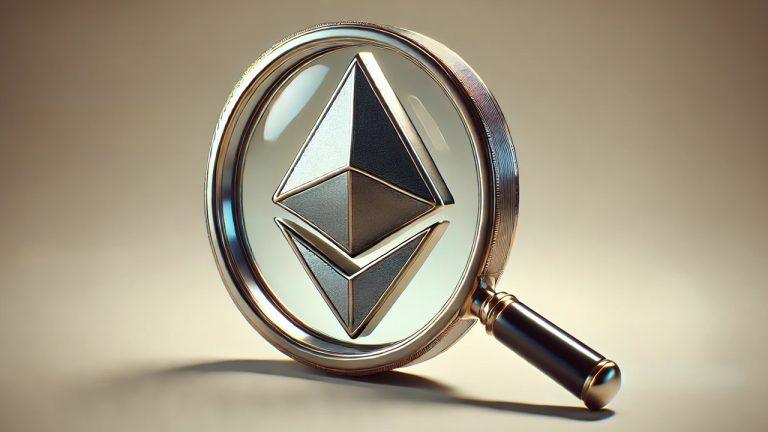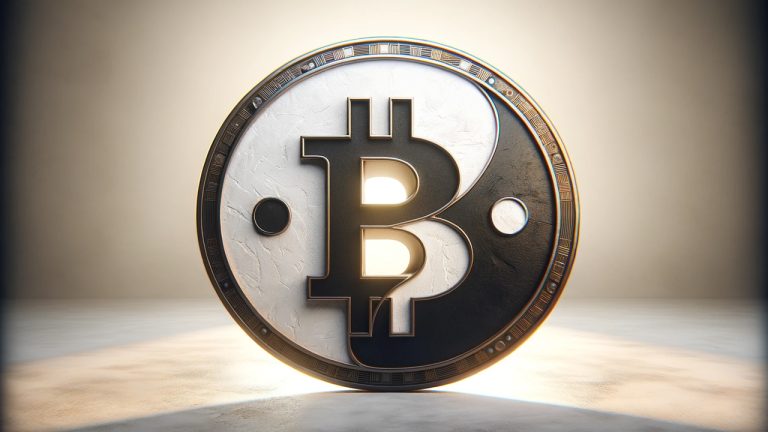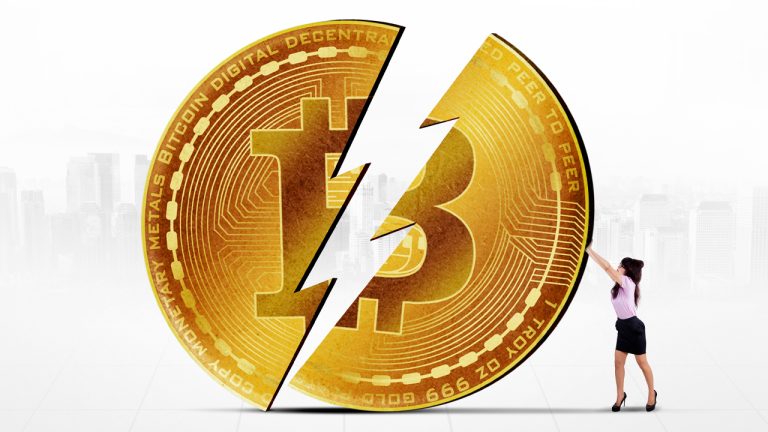 According to recent statistics from July 16, 2024, Google Trends data reveals a significant increase in interest for the term “ethereum,” climbing from a score of 57 out of 100 on July 14 to a peak of 82 on Monday. Similarly, the search query “bitcoin” saw a rise, moving from a score of 71 to […]
According to recent statistics from July 16, 2024, Google Trends data reveals a significant increase in interest for the term “ethereum,” climbing from a score of 57 out of 100 on July 14 to a peak of 82 on Monday. Similarly, the search query “bitcoin” saw a rise, moving from a score of 71 to […] Google Trends data reveals a consistent increase in search interest for “CBDC,” which stands for central bank digital currency, over the past five years. The term has maintained a score above 20 since August 2022, on a scale of 1 to 100, where 100 signifies peak interest. CBDCs See Consistent Search Growth, Top Regions Include […]
Google Trends data reveals a consistent increase in search interest for “CBDC,” which stands for central bank digital currency, over the past five years. The term has maintained a score above 20 since August 2022, on a scale of 1 to 100, where 100 signifies peak interest. CBDCs See Consistent Search Growth, Top Regions Include […] Over the past week, bitcoin has exhibited a downward trend, with its price stabilizing at around $62,950 to $63,125 per unit as of April 27. Despite this dip, the Crypto Fear and Greed Index remains firmly in the “greed” sector. According to Google Trends, interest in the term “bitcoin” has diminished, while the market intelligence […]
Over the past week, bitcoin has exhibited a downward trend, with its price stabilizing at around $62,950 to $63,125 per unit as of April 27. Despite this dip, the Crypto Fear and Greed Index remains firmly in the “greed” sector. According to Google Trends, interest in the term “bitcoin” has diminished, while the market intelligence […] A recent study focusing on the search term “bitcoin” through Google Trends data revealed that curiosity remained subdued even as the price soared above the $50K mark. Yet, anticipation for the forthcoming reward halving has hit a 90-day peak. Slated for April 2024, this significant occasion will slash the pace at which new bitcoins are […]
A recent study focusing on the search term “bitcoin” through Google Trends data revealed that curiosity remained subdued even as the price soared above the $50K mark. Yet, anticipation for the forthcoming reward halving has hit a 90-day peak. Slated for April 2024, this significant occasion will slash the pace at which new bitcoins are […] As bitcoin’s value surged to $52,545 this week, the fascination with it appears subdued, with Google Trends indicating a low level of interest. Currently, global metrics from the last 90 days reveal the search term “bitcoin” holds a score of 36 out of 100, significantly less than when bitcoin first exceeded the $50K threshold nearly […]
As bitcoin’s value surged to $52,545 this week, the fascination with it appears subdued, with Google Trends indicating a low level of interest. Currently, global metrics from the last 90 days reveal the search term “bitcoin” holds a score of 36 out of 100, significantly less than when bitcoin first exceeded the $50K threshold nearly […]
With a score of 17 out of 100, online interest in crypto has taken a big hit from its highest levels reached in May 2021.
A two-month-long lull in cryptocurrency optimism has seen online search interest for “crypto” and other common cryptocurrency terms stumble down to late 2020 levels.
According to data from Google Trends, the term “crypto” currently has a score of 17, which is well off its reference point of 100 in May 2021. Bitcoin (BTC) and Ethereum have followed a similar downward trajectory.
However, search interest for these terms has been in a relatively consistent decline since May 2022, about a month after much of the Terra Luna ecosystem collapsed. A small spike in interest came in early November when the crypto exchange FTX collapsed.

The fall in interest comes as Bitcoin has held steady at around $28,000 for 10 weeks now — price action that Galaxy Digital CEO Mike Novogratz recently described as “lackadaisical” and caused by a lack of “institutional excitement right now.”
Guy Turner, commonly known as “Coin Bureau Guy,” suggested in a June 4 Twitter post that the fall in interest also coincides with lower trading volumes on exchanges, which he claims to have reached a 32-month low last month:
"Crypto" search trends are at the lowest point they have been since December 2020.
— Coin Bureau (@coinbureau) June 4, 2023
This also corresponds to exchange volumes which were at 32 month lows this past May.
Apathy? pic.twitter.com/UPOmhNGeDN
Alternative’s Crypto Fear & Greed Index tells a similar story too, with market sentiment hovering around its current score of 53 — in the “Neutral” zone — for nearly a month now.

Interest hasn’t dipped in every domain of crypto though.
Search volumes for “decentralized finance” and “defi” have managed to increase in 2023, while searches for “memecoin” reached a peak in early May.
Related: Institutions ‘extremely interested’ in crypto ETFs, but buying has cooled: Survey
Nigeria currently holds the highest score for most crypto-related searches, while many of the lowest scores come from South American countries.
On the other hand, search interest for artificial intelligence continues to skyrocket, which many believe is the latest “tech fad.”
Magazine: Crypto winter can take a toll on hodlers’ mental health

Google Trends data reveals that even though AI is the talk of the town, it still pales in comparison to Bitcoin in 2017. In China, it's a completely different story.
Global search interest for the term “AI” has reached a new all-time high on Google, though it’s yet to hold a candle to Bitcoin (BTC) peak mania in 2017, data has revealed.
Artificial intelligence has dominated headlines over the past few months, with some suggesting that it’s the latest “tech fad” after crypto and the Metaverse.
Most recently, OpenAI executives warned in a May 23 blog post that within the next ten years, AI will exceed expert skill level in “most domains” and be as productive as “one of today’s largest corporations.”
However while global and United States search interest for AI has reached a fever pitch — clocking in at 89 on Google Trends, it is still shy of Bitcoin’s peak search interest of 100 in December 2017 when Bitcoin was nearing its then-high of $20,000.

Mark Schilsky, an Alliance Bernstein technology specialist noted on May 31 that AI was “still far below the absolute hype of Bitcoin,” according to a report from Business Insider. His analysis was specifically focused on U.S. search trends.
Schilisky compared the three “buzziest segments of the tech industry” over the past ten years, “AI”, “metaverse”, and Bitcoin,” to reveal that the peak of search volume for “Bitcoin” is higher than the peak of search volume for AI so far.
The results, however, vastly differ in China, where cryptocurrency is banned and Google search is restricted. The country favors Baidu as its search engine.
According to Google Trends, China’s Google users have consistently had more search interest for AI compared to Bitcoin on a monthly basis since May 2013.

Throughout the last decade, there were only three instances in which Bitcoin surpassed AI searches in China, which line up with significant Bitcoin-related events.
In November 2013, Bitcoin surpassed AI as a search time in China for the first time, coinciding with it reaching its highest-ever level of $300 on the now-defunct cryptocurrency exchange Mt. Gox.
In December 2017, Bitcoin once again took the lead in search interest, which was when Bitcoin hit all-time highs of $17,249.92 at the time.
The third and most recent occurrence took place in February 2021, as Bitcoin soared above $43,000 following the news that Tesla had bought $1.5 billion worth of Bitcoin, and its decision to start accepting Bitcoin payments.
The country banned cryptocurrencies in 2021, and shortly after it was reported by Cointelegraph’s staff in China that online searches for several major cryptocurrency exchanges were returning zero results.
Related: Australia asks if ‘high-risk’ AI should be banned in surprise consultation
Meanwhile, China has seen searches for “AI” hit their all-time high of 100 in April 2023. Today, the search score is around 94.
In May, Flytek, a state-sponsored Chinese AI company, announced it is launching “Spark Model” an AI system designed to compete directly with OpenAI’s ChatGPT.
Chinese officials recently discussed the need for “dedicated efforts to safeguard political security and improve the security governance of internet data and artificial intelligence,” during a meeting on May 30. According to a local media outlet it was stated:
“We must be prepared for worst-case and extreme scenarios and be ready to withstand the major test of high winds, choppy waters and even dangerous storms.”
Magazine: Make 500% from ChatGPT stock tips? Bard leans left, $100M AI memecoin: AI Eye
 Recent data reveals that while the banking industry in the U.S. is facing significant challenges, executives are mentioning “credit tightening” more frequently in earnings calls than during the 2008 financial crisis. Additionally, Google Trends data indicates a surge in search queries related to bank failures and crises. The findings suggest that the U.S. economy is […]
Recent data reveals that while the banking industry in the U.S. is facing significant challenges, executives are mentioning “credit tightening” more frequently in earnings calls than during the 2008 financial crisis. Additionally, Google Trends data indicates a surge in search queries related to bank failures and crises. The findings suggest that the U.S. economy is […] In the midst of the banking upheaval in the United States, Google Trends has revealed a notable surge in searches related to the acquisition of gold, with the search query reaching a perfect score of 100 during the first week of April 2023. Similarly, the search term “how to buy bitcoin” reached the same score […]
In the midst of the banking upheaval in the United States, Google Trends has revealed a notable surge in searches related to the acquisition of gold, with the search query reaching a perfect score of 100 during the first week of April 2023. Similarly, the search term “how to buy bitcoin” reached the same score […] Less than two months ago, a collection of 74 listed cryptocurrencies centered around artificial intelligence (AI) amassed an impressive $4 billion valuation. However, the intervening weeks have seen a sharp decline in crypto-AI economy gains, with losses of $730 million. The three most prominent AI-driven crypto projects have all suffered double-digit losses, ranging from 10% […]
Less than two months ago, a collection of 74 listed cryptocurrencies centered around artificial intelligence (AI) amassed an impressive $4 billion valuation. However, the intervening weeks have seen a sharp decline in crypto-AI economy gains, with losses of $730 million. The three most prominent AI-driven crypto projects have all suffered double-digit losses, ranging from 10% […]